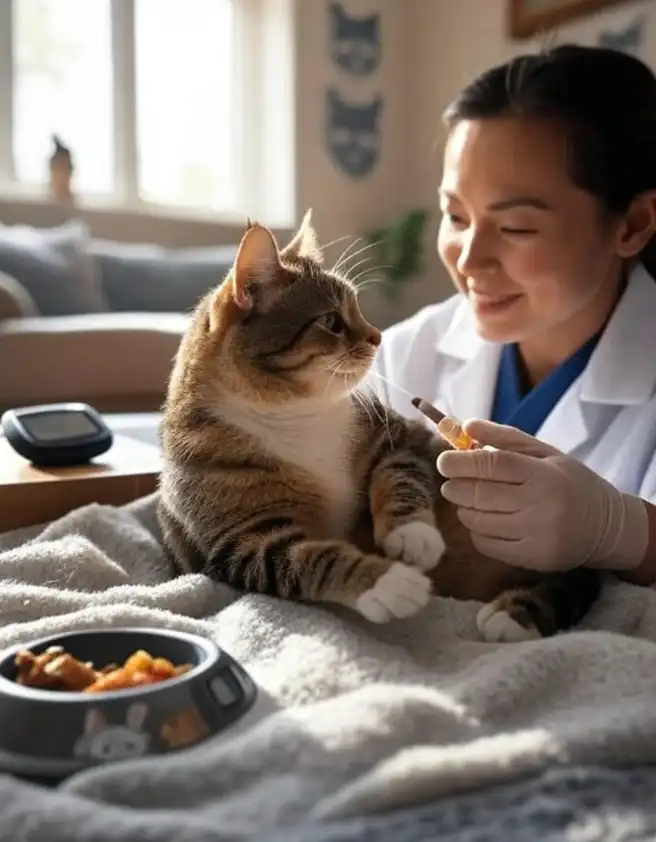What Are We Doing? A Veterinarian’s Struggle—and a Way Forward
A vet’s heartfelt look at the challenges in modern pet care and a hopeful path to better support animals and their caregivers.
I didn’t become a veterinarian to meet quotas. I didn’t take on years of schooling, sleepless nights, and emotional toll to be told how many surgeries I need to perform each month.
I became a vet because I love animals. Because I wanted to heal, to comfort, to advocate for those who can’t speak for themselves. But somewhere along the way, the heart of this profession got buried under profit margins, productivity targets, and corporate agendas.
One by one, the small, community-focused practices I admired started disappearing—bought up by massive corporate groups like VCA and Banfield. These companies promised resources, support, and structure. But what they really brought was pressure. Pressure to increase revenue, to upsell services, to hit quotas that have nothing to do with patient well-being and everything to do with financial gain.
And now, I find myself asking: Who is this really serving?
Not the animals. Not the families who trust us. And not us, the veterinarians. We’re emotionally exhausted. Morally conflicted. Quietly drowning in burnout. We’re part of a profession with one of the highest suicide rates in the country, and no one seems to be talking about why.
How did we get here?
We let businesspeople—not healers—take the wheel. And in doing so, we created a system where treatment decisions are often driven by spreadsheets instead of science, and where compassion is a line item, not a priority.
We’ve fallen into a pattern: prescribe a drug. If that doesn’t work, schedule surgery. If that doesn’t work, recommend euthanasia. It’s a conveyor belt of care that often misses the nuance, the patience, and the listening that animals truly need.
So where do we go from here?
We start by reclaiming our power to say no. No to unnecessary procedures. No to metrics that don’t measure actual care. No to the idea that profit is more important than life. We need to remember why we became vets in the first place—and demand a system that supports that mission, not undermines it.
How do we take care of ourselves while we take care of others?
We open up about the mental toll this is taking on us. We talk about burnout. We demand access to real mental health resources, not just empty wellness emails from HR. And we stop pretending that pushing ourselves past the breaking point is a badge of honor.
Is there a better way to practice medicine?
Yes. More and more vets are turning toward integrative and holistic care—they’re taking classes in veterinary acupuncture, massage, laser therapy, botanical medicine, and nutrition. These aren’t just “alternative” anymore. They’re evidence-based practices, grounded in science, that respect the complexity of an animal’s body, mind, and environment. They treat root causes, not just symptoms. And they allow us to be healers again, not just technicians or salespeople.
There are organizations like CuraCore and others offering real training and support for vets who want to walk this path. And slowly, the tide is starting to turn.
So what needs to change?
We need to shift the industry culture from corporate to compassionate.
We need to elevate the voices of vets who are practicing ethically and holistically.
We need to create space for care that is thoughtful, integrative, and individualized.
And most of all, we need to protect the people who have dedicated their lives to protecting animals.
I still love this work.
I still believe in its purpose.
But we need a revolution in how we define care—before this system breaks all of us.
FAQs About Veterinary Challenges
Explore common questions about the struggles veterinarians face and solutions for a sustainable future in veterinary practice.
What challenges do veterinarians face today?
Veterinarians often deal with emotional burnout, long hours, and financial strain. High client expectations, limited resources, and ethical dilemmas about animal care add pressure. Balancing compassion with business demands is tough. Solutions include better mental health support and practice management.
Why is burnout common in veterinary medicine?
Burnout stems from emotional exhaustion, dealing with pet loss, and high workloads. Vets face intense schedules and client demands, leading to stress. Implementing wellness programs, flexible hours, and peer support can help reduce burnout in the profession.
How can veterinarians manage financial stress?
Financial stress arises from low profit margins and high operational costs. Vets can adopt efficient billing, offer subscription plans, or focus on preventive care to boost revenue. Financial planning and transparent pricing also ease economic pressures.
What role does mental health play in veterinary work?
Mental health is critical due to high-stress cases and emotional client interactions. Vets need access to counseling, stress management tools, and supportive workplace cultures to thrive. Prioritizing self-care improves job satisfaction and patient care.
How can technology help veterinarians?
Technology streamlines veterinary practice with tools like digital records, telemedicine, and diagnostic software. These save time, improve accuracy, and enhance client communication. Adopting tech solutions boosts efficiency and reduces administrative burdens for vets.
What is the impact of client expectations on vets?
High client expectations can strain vets, demanding quick results and low costs. Clear communication, setting realistic goals, and educating clients about care options help align expectations. This fosters trust and reduces pressure on veterinarians.
How can veterinary practices improve work-life balance?
Flexible scheduling, adequate staffing, and time-off policies promote work-life balance. Encouraging team collaboration and outsourcing non-core tasks also help. A balanced approach ensures vets stay energized and provide high-quality animal care.
What are sustainable practices for veterinary clinics?
Sustainable practices include energy-efficient equipment, eco-friendly supplies, and digital documentation to reduce waste. Offering telemedicine and preventive care cuts unnecessary visits. These steps lower costs and environmental impact while maintaining care quality.
How can vets stay updated with industry trends?
Vets can stay current by attending workshops, reading journals, and joining professional networks. Online courses and webinars offer flexible learning. Staying informed about new treatments and technologies ensures high standards of care.
What is the future of veterinary medicine?
The future involves advanced diagnostics, telemedicine, and personalized pet care. Emphasis on mental health, sustainable practices, and technology integration will shape the industry. Collaboration and innovation will drive better outcomes for vets and pets.
-

Protect Your Pet: The Rewards of Deworming Your Dog
-



How Building Inspections Ensure Pet-Friendly Homes
-



10 Cheapest Dog Training Pads for Tight Budgets
-



Cat Nutrition Guide for Optimal Feline Health
-



Feline Diabetes Care: A Guide for Pet Owners
-



Why Does My Dog Eat Grass and Vomit? Causes, Concerns, and Solutions
-



Ultimate Guide to Dog Breed Identifier DNA Tests
-



Winter Joint Care for Your Furry Friends Keeping Them Active & Pain-Free
-



Puppy Palooza: Role of Gut-Loving Frozen Treats for Happy, Healthy Dogs



